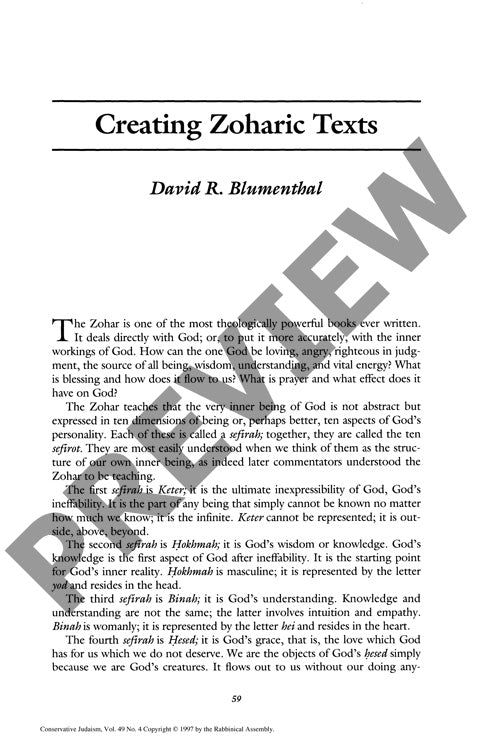Creating Zoharic Texts
Couldn't load pickup availability
When medieval Jewish mystics penned the Zohar, they likely never imagined their spiritual descendants would compose new zoharic texts in university classrooms. Yet contemporary students have proven remarkably capable of generating sophisticated mystical compositions while grappling with the Zohar's complex theological framework. Through guided pedagogical practice, students modified select assumptions within traditional Zoharic systems while maintaining core metaphysical principles, resulting in three exemplary texts that demonstrate mastery of sefirotic dynamics, gender symbolism, and divine emanation theory. The first text, "Male and Female, Sibling and Mate," explores the fluid nature of gender within the sefirot and challenges traditional binary gender assignments in mystical literature. The second text, "The Duty of the Bride," examines the active role of the Shekhinah in maintaining sefirotic balance and preventing divine exile. The third text, "Male and Female Desire," investigates the relationship between human sexuality and divine unification, incorporating both sanctified and demonic elements. These innovative compositions address modern concerns about gender roles and spiritual agency while demonstrating that creative textual composition serves as an effective pedagogical tool for deepening comprehension of Jewish mystical literature. The students' work illustrates the continuing vitality and adaptability of Zoharic literature in contemporary Jewish studies.

More Information
-
Physical Description
-
Publication Information
Published 1997
ISBN
-
Publication Credits
David Blumenthal

